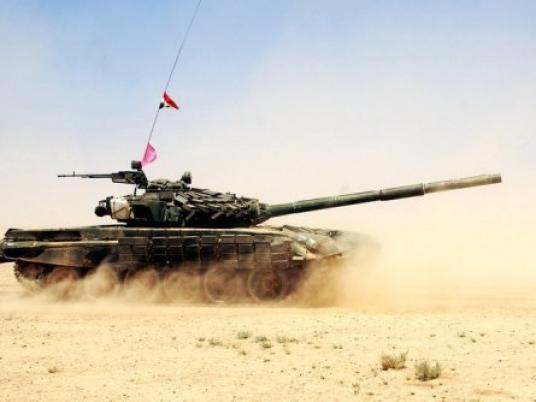
Syrian President Bashar al-Assad has moved army forces from the Golan Heights area next to Israel toward Damascus and other internal conflict zones, the Israeli army intelligence chief said on Tuesday.
As fighting rages between Assad's forces and rebels trying to oust his government, he has moved troops from the Syrian side of the disengagement line that divides the Golan Heights between Syria and Israeli-held territory, he said.
"Assad has removed many of his forces that were in the Golan Heights to the areas of (internal) conflict," Major General Aviv Kochavi told MPs.
"He's not afraid of Israel at this point, but mainly wants to augment his forces around Damascus," Kochavi said in remarks relayed by a Knesset spokesman.
Fighting between Assad's forces and rebels trying to oust his government has raged in Damascus since Sunday, with some activists saying it marked a "turning point" in the 16-month revolt against the regime.
Syria remains formally at war with Israel, which captured part of the Golan Heights in the 1967 Middle East war and annexed it in 1981 in a move which the international community does not recognise.
But Kochavi said "the probability of a conflict between Israel and Syria as a last resort for Assad is low."
He warned that "radical Islam" was gaining ground in Syria, saying the country was undergoing a process of "Iraqisation," with militant and tribal factions controlling different sectors of the country.
"We can see an ongoing flow of Al-Qaeda and global jihad activists into Syria," he said.
And with the Assad regime weakening, "the Golan Heights could become an arena of activity against Israel, similar to the situation in Sinai, as a result of growing jihad movement in Syria."
Without committing to a time framework, Kochavi predicted that Assad "won't survive the upheaval," and said "Hezbollah and Iran are preparing for the day after Assad's fall."
Kochavi also said Israel was closely monitoring the "possibility that advanced and unconventional arms would reach terror groups."
Last month, Israel's deputy chief of the general staff, Major General Yair Naveh, said that Syria holds the "biggest chemical weapons arsenal in the world."




